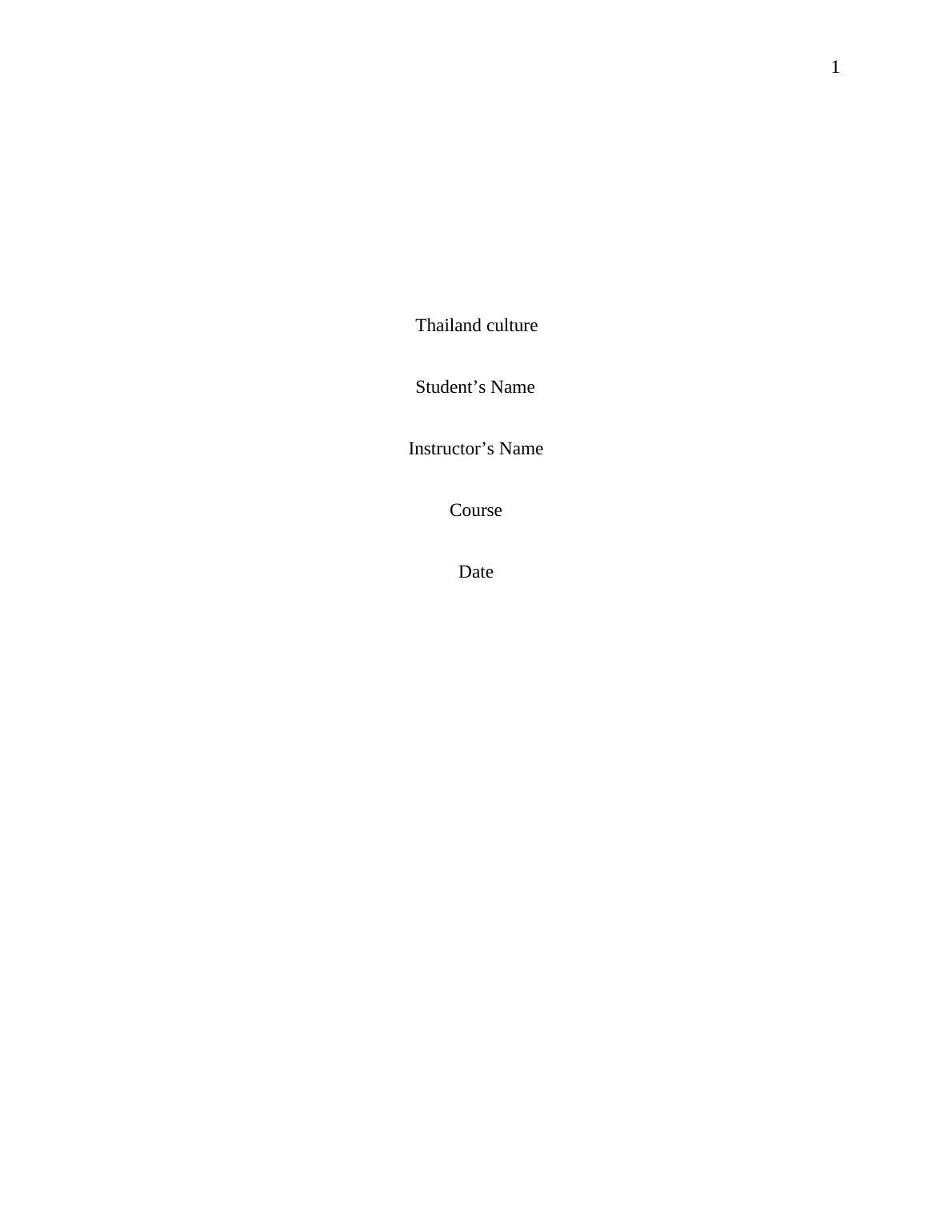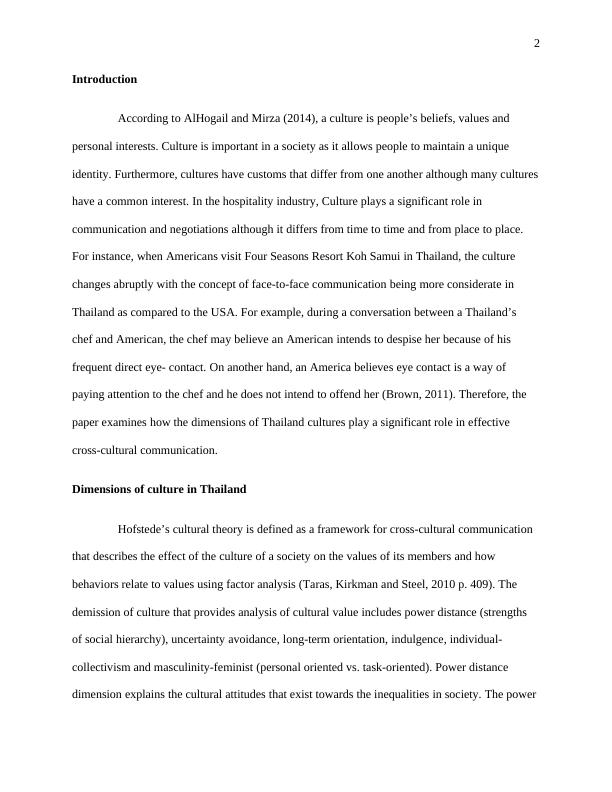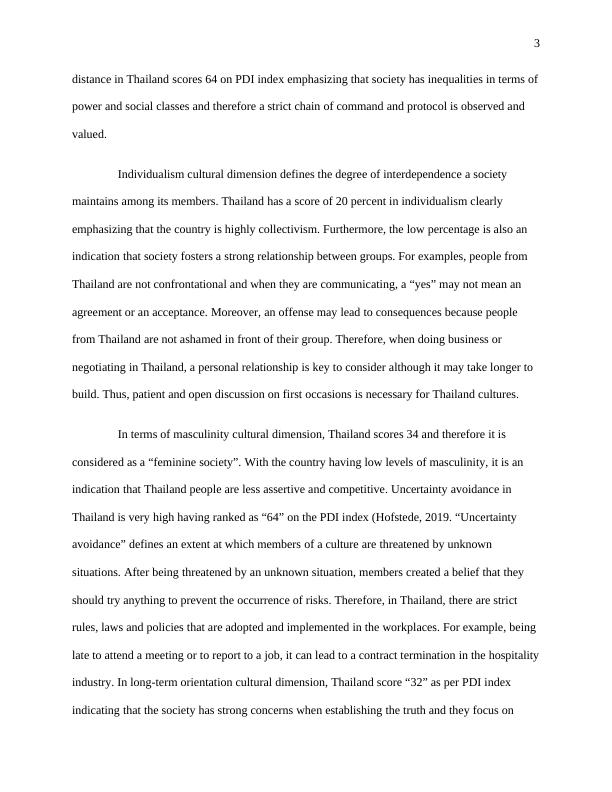Thailand Culture: Dimensions and Communication
8 Pages1683 Words120 Views
Added on 2023-04-11
About This Document
This article explores the dimensions of Thailand culture and how they affect cross-cultural communication. It discusses power distance, individualism, and long-term orientation. It also provides recommendations for listening and responding to people from Thailand, as well as things to avoid. The article emphasizes the importance of understanding cultural differences to avoid misinterpretations and conflicts.
Thailand Culture: Dimensions and Communication
Added on 2023-04-11
ShareRelated Documents
End of preview
Want to access all the pages? Upload your documents or become a member.
Managing Across Borders Assignment
|10
|1560
|71
Business Across Culture: Critical Assessment of Hofstede Model and Impact of Cultural Diversity on Cross Border Business
|21
|5601
|189
Management in Global Business Environment
|5
|985
|227
Assignment - Cultural Diversity
|9
|2256
|51
International management assignment
|8
|2187
|62
Analysis and Assessment of Emotional Intelligence
|13
|3485
|193



